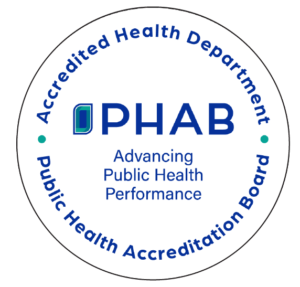Quick facts about West Nile Virus:
- West Nile Virus (WNV) is an illness that can be serious.
- Since 2002, WNV has been found in Ohio in all 88 counties in birds, mosquitoes, humans or horses.
- Mosquitoes get WNV when they feed on birds that have WNV. Mosquitoes that have WNV can then spread WNV to humans and other animals when they bite.
- WNV is not spread from person to person (touching or kissing a person who has WNV). WNV has been spread through blood transfusions, organ transplants, breastfeeding and even during pregnancy from mother to baby.
- There is no specific medicine for WNV and there is no vaccine for humans.
- WNV death rates are three percent to 15% and are highest in the elderly.
- If you find a dead bird, do not handle it with your bare hands. Call the Lake County General Health District at (440) 350-2543 for instructions on reporting and disposing of the dead bird.
- In areas where WNV is present, very few mosquitoes have the virus. If a mosquito has WNV, less than 1% of people who get bitten and get WNV will become seriously ill.
Tips for Homeowners:
The best way to protect yourself from WNV is to get rid of places where mosquitoes can lay their eggs to make more mosquitoes. Follow these simple steps:
- Dispose of tin cans, old tires, buckets, plastic swimming pools that are not being used, plastic covers or other things that can hold water.
- Make sure that your roof gutters are not clogged. Clean roof gutters in the spring and fall.
- Clean swimming pools, outdoor saunas and hot tubs. Use chlorine according to the manufacturer’s instructions and keep pools, saunas and hot tubs covered when no one is using them.
- Empty and change the water in birdbaths, fountains, wading pools, rain barrels and potted trays at least one time every week.
- Fill or drain puddles, ditches and swampy areas. Get rid of, drain or fill tree holes and stumps with cement.
- Get rid of standing water from cisterns, cesspools and septic tanks.
- Get rid of standing water in areas where animals eat.
- Water your lawn carefully so that water is not standing there for many days.
- Fix torn screens or get new ones.
It is best to stay indoors from sundown to sunset when mosquitoes are most likely to be around. If you must go outdoors at these times:
- When you are outdoors, use insect repellent that have DEET, Picaridin (KBR 3023), Oil of Lemon Eucalyptus (PMD), or IR3535. Follow the directions on the package.
- According to the United States Centers for Disease Control, there have been no reports of problems with pregnant or breastfeeding women using repellents with DEET or Picaridin.
- If you are concerned about using repellent products on children you may wish to consult a health care provider for advice or contact the National Pesticide Information Center (NPIC) through their toll-free number, 1-800-858-7378 or npic.orst.edu.
- Wear long-sleeved shirts, long pants and socks when you are outdoors, especially from sundown to sunset.
- Replace outdoor lights with yellow “bug lights.”
- Call the Lake County General Health District at (440) 350-2543 if you are worried about standing water.

